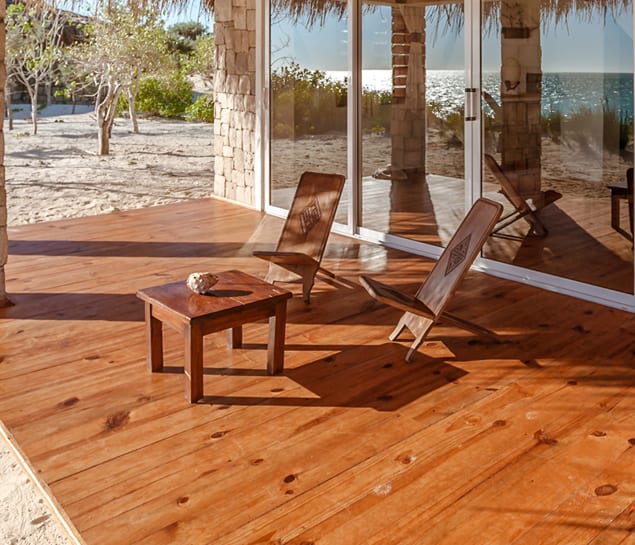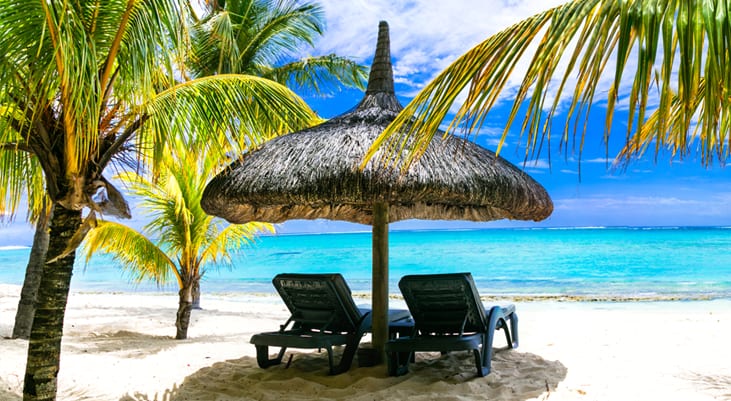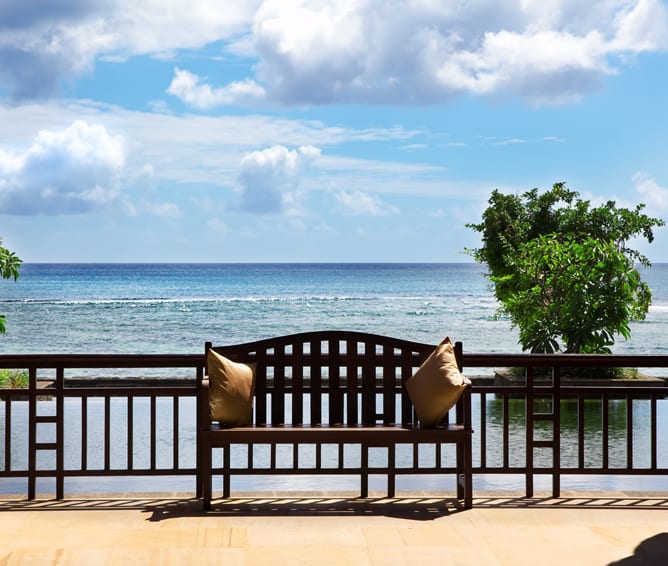Smart City Scheme (SCS)
What is it?
The Smart City Scheme has been designed to promote the creation of cities where working, living and leisure space are environmental-friendly, self sufficient in terms of energy and water, provide state of the art connectivity, provide for modern transportation and reduce traffic congestion.
Any SCS project, other than a technopole project, should:
- Be developed on land having an extent of at least 21.105 Hectares (50 arpents)
- Adhere to the live, work and play concept
- Integrate within the development a mix of compatible land use including commercial (office, light industrial, hotel, retail), leisure (public entertainment) and residential (land area dedicated for residential use cannot exceed 50% of total land area) to create a pedestrian oriented urban environment
- Have at least 25% of the residential properties sold to citizens of Mauritius or members of the Mauritian Diaspora
A Smart City project must include residential properties, affordable housing units, business facilities, civic centres and leisure amenities, high-quality public spaces, day-to-day management services, intelligent urban management and services and social programmes.


For any Smart City project, there will be:
- A Smart City Company which will gather the development site, obtain the Smart City Certificate, parcel the site into serviced development sites, and sell them to developers
- Smart City Developers (can be citizen or non-citizen) which will develop the serviced land according to the agreed use and development criteria as in the masterplan of the project
- Acquirers of residential and commercial properties (can be citizen or non-citizen)
- A Smart City Management Company
What type of property can be acquired in a SCS development?
Serviced land for business purposes
Non-Citizen can acquire plots of serviced land dedicated for business purposes. In this case, an authorisation from EDB will be required as outlined in the Non-Citizens (Property Restriction) Act.
Serviced residential plots of land
Non-citizens are not permitted to acquire plots of serviced residential land to build an individual house. However, citizens and members of Mauritian Diaspora can acquire these plots of serviced residential land. The extents of such of residential plots cannot exceed 2,100 square metres. On the acquisition of such a plot of land, the buyer must build a residential property within 5 years as from the date of its acquisition. The plot cannot be sold unless construction has been completed.
Built residential properties
Built up residential properties may comprise villas, houses, townhouses, apartments and duplexes. Non-citizens are allowed to acquire such residential properties in a Smart City.
Property other than residential property
In line with requirements of the Non-Citizens (Property Restriction) Act, an application must be made by a non-citizen to the EDB for acquisition of properties other than residential ones.
Life Rights
Non-citizens (retirees) may acquire life rights in sections on the Smart City where retirement complexes have been developed. A person acquiring a life right in respect of a residential property has the right to live in a unit for the rest of his life, free of rent. There is no transfer of property. Ownership is retained by the Smart City Company or Smart City Developer.
Is there a minimum price set for a property in a SCS development?
There is no minimum price for the acquisition of a property under the PDS.
Does a non-citizen purchaser obtain residency in Mauritius following acquisition of a residential property in a SCS development?
A residence permit under the Immigration Act is granted to the non-citizen upon acquisition of built residential property in the Smart City for not less than USD 500,000 or its equivalent in any other freely convertible foreign or Mauritian currencies. The residence permit will remain valid as long as the holder maintains ownership of the property.
Where a person has the status of resident, his spouse (or common law partner), the child (or stepchild or lawfully adopted child) under the age of 24 of the current spouse (or common law partner) and a wholly dependent (unmarried) next of kin of the person (provided that the number of dependents does not exceed 3) shall have the status of resident.
The residence permit allows purchasers to benefit from the particularly favourable fiscal policy of the country. For acquirers who will not be eligible for a residence permit, they will be able to reside in Mauritius up to six months a year in Mauritius.
At which stage of the development of a SCS project are residential properties sold?
A residential property, other than bare serviced land, under the SCS may be sold either:
On the basis of a plan (off-plan sales)
During the construction phase
Upon completion of the construction
Where the acquisition is made off-plan or during the construction phase, the contract shall be governed by the provisions of the “vente en l’etat futur d’achevement (VEFA)”, as more fully described in the articles of the Code Civil Mauricien.
A sale in a future state of completion is the contract by which a seller transfers at once to the buyer his rights in the ground as well as the ownership of the existing structures. The works to come become the property of the buyer as they proceed; the buyer is bound to pay the price of them as the work proceeds.
In accordance with the provisions of Article 1601-30 of the Code Civil, the price of a residential unit when sold under “vente en l’état futur d’achèvement” is payable in instalments as the work progresses, as follows:
Upon signing of the deed:
25%
Upon completion of the foundation works:
10%
Upon completion of roofed-in phase:
35%
Upon completion:
25%
Upon availability of premises:
5%

Can a purchaser take a loan in Mauritius to acquire such a property?
A loan can be taken locally to acquire a SCS property in Mauritius. Where a loan is contracted in Mauritius currency with a bank in Mauritius, the first 500, 000 US dollars must be paid in USD or its equivalent in any other freely convertible foreign currency; and the repayment of the loan must be effected in any freely convertible foreign currency.
Does a purchaser have any guarantee with respect to the quality of finish of the SCS properties?
As part of the obligations of the promoter of the development under the Scheme, the promoter (either the SCS Company or SCS Developers) and therefore seller need to subscribe, at the time of delivery of residential properties, with a property damage insurance policy in favour of eventual or subsequent buyer to guarantee, for a period of 2 years from the date of delivery of the residential property to the purchaser, the payment of compensation for any property damage resulting from defects in non-structural elements. For defects in structural elements, an insurance policy extending up to 10 years from the delivery date is applicable.
What incentives does the SCS propose?
A Smart City Company is exempted from payment of:
- Income tax for a period of 8 years from the issue of SCS Certificate
- Land Transfer Tax and Registration Duty on transfer of development land into the Smart City Company (provided that transferor hold shares in the Smart City Company which is equivalent to the value of the land)
- Land Transfer Tax and Registration Duty on transfer of serviced land from the Smart City Company to a Smart City Developer (provided that transferor hold shares in the transferee which is equivalent to at least the value of the land)
- Land Conversion Tax in respect of the land earmarked for the development of non-residential components
- Value Added Tax in respect of buildings and capital goods
- Customs Duty on import or purchase of dutiable goods, other than furniture
- Morcellement Tax
A Company registered as a Smart City Developer is exempted from the payment of:
- Income Tax for a period of 8 years from the issue of the registration certificate
- Land Transfer Tax and Registration Duty on transfer of serviced land from the Smart City Developer to a Special Purpose Vehicle (provided that transferor hold shares in the transferee which is equivalent to at least the value of the land)
- Value Added Tax in respect of buildings and capital goods
- Customs Duty on import or purchase of dutiable goods, other than furniture
- Morcellement Tax
Incentive to non-citizen investors:
A non-citizen having held a residence permit for a continuous period of 2 years, and having invested over USD 5 million or its equivalent in Mauritius, is eligible to apply for registration/naturalisation as a citizen of Mauritius.
